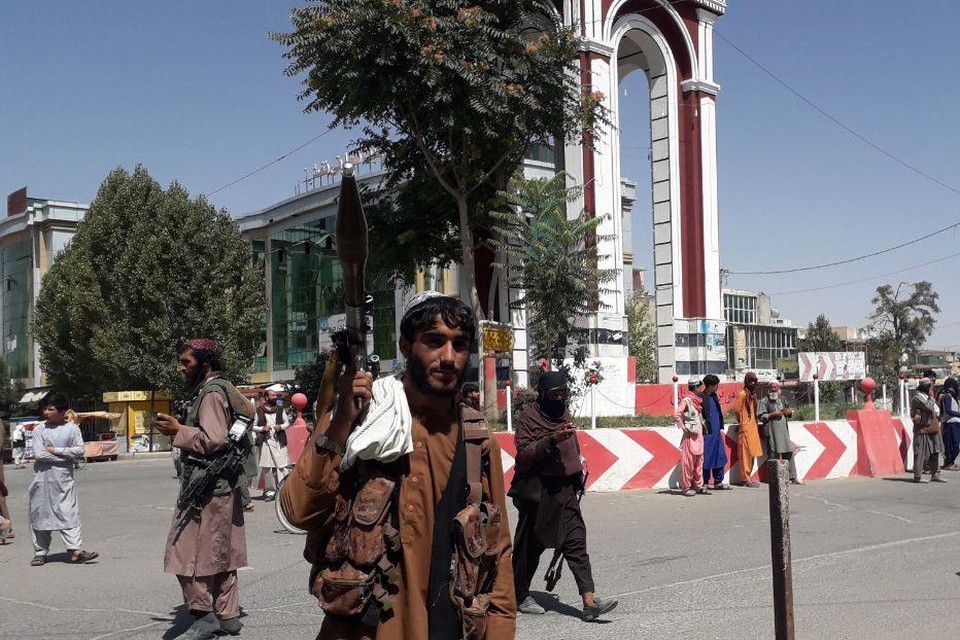One year after the Taliban seized power by force in Afghanistan, Belgium notes a clear setback for human rights and respect for fundamental freedoms, with women and girls gradually disappearing from public life.
Since seizing power a year ago, the Taliban have constantly violated human rights: peaceful protests have been met with violence, women's rights have been suppressed and extrajudicial killings and disappearances have been used to instil fear in the population.
In a recent report, the United Nations pointed out that the erosion of women's rights is one of the most notable human rights issues of the past year.
"Measures are progressively erasing women and girls from public life," Belgium's Foreign Minister Hadja Lahbib said in a press release, "such as denial of access to secondary schools and suspension of classes, obstacles to employment, lack of opportunities to participate in political and public life, and limits on their freedom of movement, association and expression, imposition of the hijab or burqa, and the requirement that women be accompanied by a male (man or boy) for travel, visits, and other activities in public life."
Dismantling 20 years of human rights
Additionally, the increase in forced marriages and child marriages seen in the country suggests devastating effects for generations to come. "These decisions go against the commitments given by the Taliban when they took power and make it impossible to resume relations with the regime."
Therefore, Amnesty International is calling on the Taliban to immediately stop committing gross human rights violations and crimes under international law. As the de facto authorities of Afghanistan, they must restore, protect and promote the rights of the Afghan people.
"A year ago, the Taliban publicly declared that they would protect and promote human rights, but the speed with which they are dismantling 20 years of human rights achievements is staggering," said Yamini Mishra regional director for South Asia at Amnesty International.
United international response is needed
Evictions were also reported in provinces across the country, adding to the already huge number of internally displaced people. By June 2022, the UN estimated the number of internally displaced Afghans at more than 820,000.
"Any hope of change has been dashed as the Taliban seek to rule through violent repression and complete impunity," she added. "Arbitrary detentions, torture, disappearances and summary executions are once again the order of the day. Women and girls are deprived of their rights and face a bleak future, deprived of education or the opportunity to participate in public life."
"We cannot stand by and watch the human rights of an entire population being taken away. A strong and united international response is the only hope to end the nightmare that Afghans have been living for a year now," added Mishra.
At the international level, Lahbib stressed that Belgium is working to keep Afghanistan on the international agenda, notably at the Human Rights Council – exactly what Amnesty is urging the international community to do.
Related News
- Sexual violence against children on the increase, UN report notes
- Belgium ordered 680 Afghan asylum seekers to leave last month
- Afghanistan: Taliban ban women from travelling unaccompanied
Beyond humanitarian aid, Belgium also directly supports mechanisms for the protection of human rights and fundamental freedoms, such as funding protection centres for female human rights defenders and working to help with an Afghan media support project.
"More than 6 million Afghans have been forced to flee their homes, including 2.7 million refugees displaced across borders," said Harlem Desir, International Rescue Committee '(IRC) Senior Vice President for Europe.
"While the vast majority have remained in the region, those who make it to Europe must be welcomed with respect and dignity. The EU’s response to people fleeing Ukraine shows that this is possible."
Meanwhile, Vicki Aken, the IRC's Afghanistan Director, stressed that the Afghan people cannot be made to pay for the actions of their de facto authorities. "Without meaningful support, Afghanistan will continue on this trajectory - and the current crisis will kill far more Afghans than the past 20 years of war."

